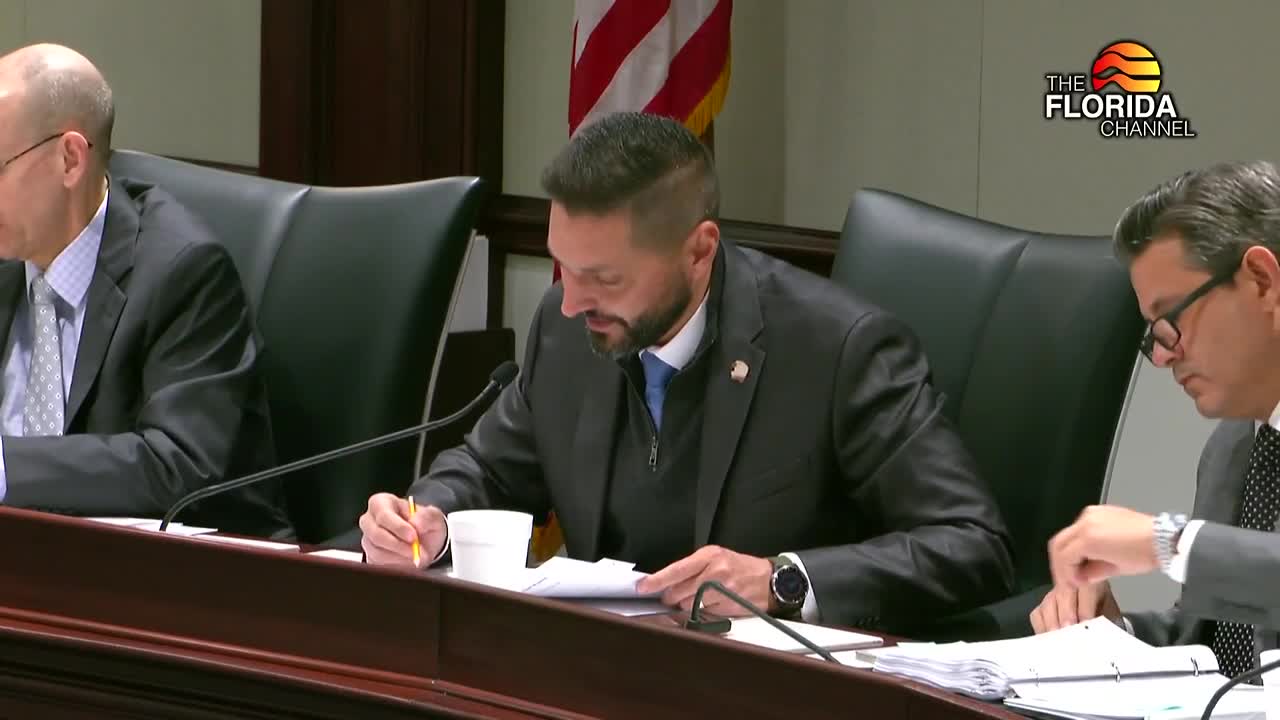Committee backs wide-ranging school deregulation bill changing assessments, evaluations and district controls
Get AI-powered insights, summaries, and transcripts
Subscribe
Summary
Senate Bill 166, a comprehensive education bill that lowers the stakes of some statewide tests, expands district flexibility over facilities and personnel policy, and shifts oversight of public VPK programs to school districts, was reported favorably by the PreK-12 Appropriations Subcommittee.
Senate Bill 166, a comprehensive education bill described by sponsor Sen. Aaron Simon as intended to reduce regulatory burdens on school districts, was reported favorably by the PreK-12 Appropriations Subcommittee after sponsor explanation, questions from committee members and multiple public witnesses in support.
Simon told the committee the bill lowers the stakes of certain statewide assessments — making Algebra I and 10th-grade ELA assessments count as 30% of a course grade rather than as an independent graduation barrier — expands assessment options for fourth-grade promotion, and gives districts flexibility over assessment calendars while requiring districts to note which assessments are state versus district instruments. The bill also increases district control over facilities planning timelines and removes certain statewide cost-per-student station limits.
On educator policy, the bill authorizes a three-year teacher contract and a 10-year professional certification, expands eligibility for teacher apprenticeship programs, limits the general knowledge test to classroom teachers, allows districts to design personnel evaluations provided student performance still makes up half of evaluations, and authorizes districts to provide salary supplements for areas of critical need outside collective bargaining constraints.
Public testimony was largely supportive. Shane Solecki, a mathematics teacher at Royal Palm Beach High School, described ongoing interruptions from make-up assessments and urged support: “I like that the test still matters as it is 30% of their grade, but not so destructive that they’re missing critical instruction,” he said. Sharon Batty, president of the Sterling Park Elementary PTA, urged returning more authority to local teachers and districts and said communities want testing reductions to ease student anxiety and reduce lost instructional time. Stephanie Farrell, a public-school parent and founding member of the Florida Freedom to Read Project, said she supports the bill and continued parental choice in public schools.
Sen. Jones questioned how the change would ensure student proficiency in mathematics; Simon responded that the state’s increased use of progress monitoring gives districts better longitudinal information and that the assessments remain but lose their high-stakes graduation role. Simon said districts retain flexibility to define the student-performance measures that will count toward the 50% student-performance component of personnel evaluations.
The bill also moves some public VPK oversight to school districts for public VPK programs beginning July 1, while private VPK programs remain under early learning coalitions, Simon said. Several school administrators and associations waived in support, and committee members praised the bill’s return of local control while acknowledging the need to monitor proficiency outcomes.
The subcommittee reported CS for SB 166 favorably on roll call.
